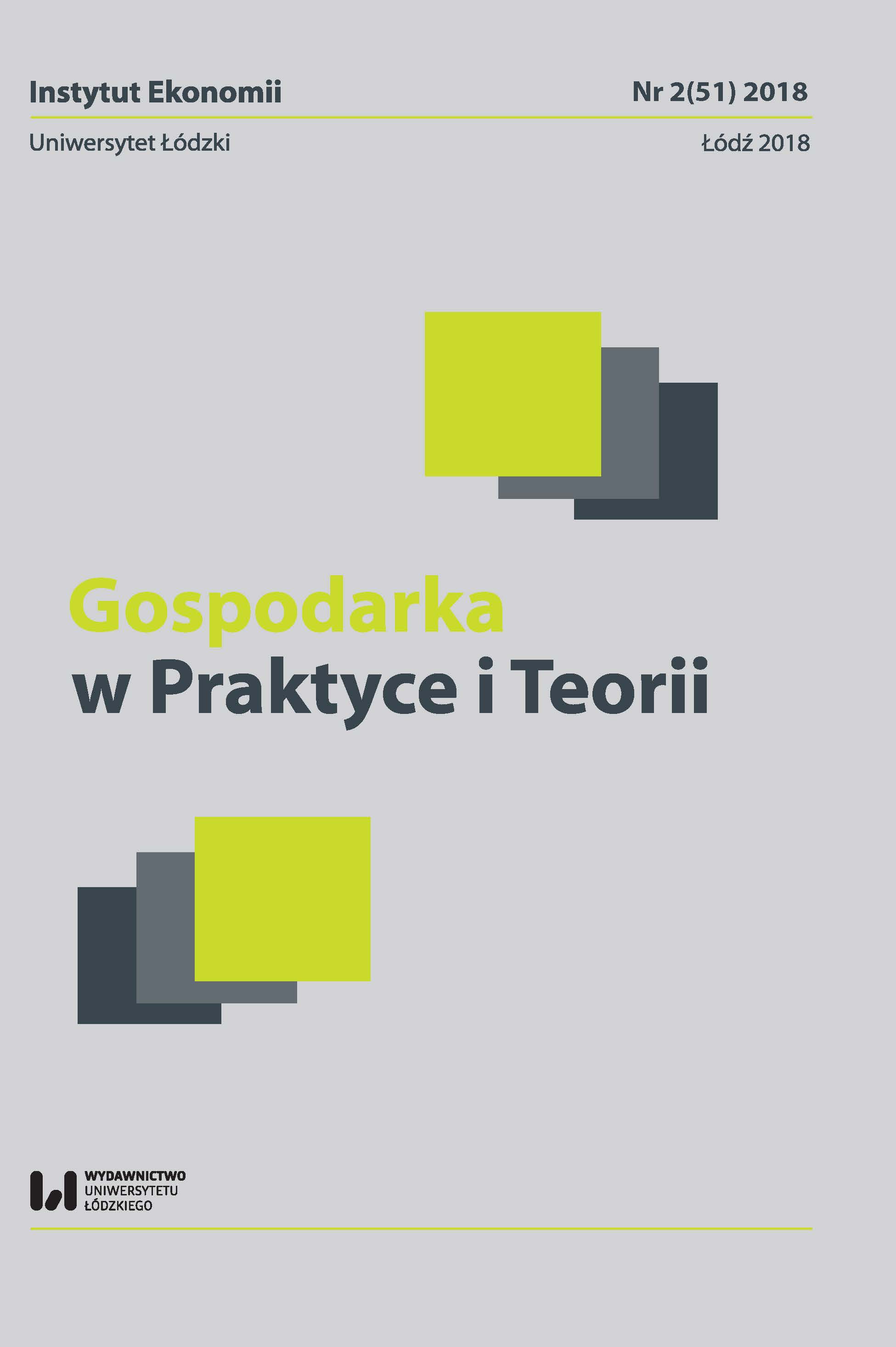Poverty and wealth as two antagonisms of the world economy in the 21st century
DOI:
https://doi.org/10.18778/1429-3730.51.06Keywords:
disproportion, hunger, poverty, water, wealthAbstract
The present world is full of discrepancies and stratifications. The greatest diversity is visible on the material plane. It can be said there are two realities. In one there is prosperity and wealth. The second one is led by poverty, hunger and diseases. The aim of the work is to show the lack of harmonious economic development of the entire economy but the occurrence of enormous disproportions between national economies in this century. Highly developed countries live more and more prosperously, while underdeveloped regions fall into even greater misery. A high level of hunger, a shortage of drinking water, income next to nothing are elements describing the countries of today’s Central Africa and South Asia. The study confirms the occurrence of colossal disparities between the standard of living in less-developed countries and the affluent regions of Western Europe or North America. The hopeless situation of poor regions requires the help of international organizations and other countries. A well-thought out aid program is able to reduce the problem of poverty. Creating a fund to support entrepreneurs wishing to invest capital in the poorest countries may become a reasonable idea. Reduction or exemption from taxation can be an additional incentive. Without any assistance, indigent countries will fall and cease to exist in the near future.
References
Budnikowski A., Międzynarodowe stosunki gospodarcze, Polskie Wydawnictwo Ekonomiczne, Warszawa 2006.
Google Scholar
Deaton A., Wielka ucieczka. Zdrowie, bogactwo i źródła nierówności, Wydawnictwo Naukowe PWN, Warszawa 2016.
Google Scholar
Deficyt wody, www.sos.wwf.pl [dostęp: 12.01.2018].
Google Scholar
Derkowska-Sitarz M., Adamczyk-Lorenc A., Wpływ składników mineralnych rozpuszczonych w wodzie pitnej na organizm człowieka, www.wgg.pwr.wroc.pl [dostęp: 13.01.2018].
Google Scholar
Human Development Report 2015, www.hdr.undp.org/en/2015-report [dostęp: 21.12.2017].
Google Scholar
International Monetary Fund, www.imf.org [dostęp: 23.12.2017].
Google Scholar
Jeppesen H., Globalny raport głodu 2014: Dwa miliardy ludzi na świecie jest niedożywionych, www.dw.com.pl, [dostęp: 11.01.2018].
Google Scholar
Kałdon B., Ubóstwo rodzin czynnikiem powstawania trudności w funkcjonowaniu szkolnym dzieci, „Forum Pedagogiczne UKSW” 2011, nr 1, www.forumpedagogiczne.uksw.edu.pl [dostęp: 22.12.2017].
Google Scholar
Kaźmierczak-Kałużna I., Ubóstwo jako problem społeczny. Kwestie terminologiczne i ustalenia empiryczne, „Kultura i Społeczeństwo” 2012, nr 1, www.kis.czasopisma.pan.pl [dostęp: 22.12.2017]
Google Scholar
Kryk B., Jakość życia – odczuwać czy mierzyć?, [w:] Poziom i jakoś życia w dobie kryzysu, Z. Wyszkowska, M. Gotowska (red.), Wydawnictwo Uczelniane Uniwersytetu Technologiczno-Przyrodniczego w Bydgoszczy, Bydgoszcz 2014.
Google Scholar
Kubiczek A., Jak mierzyć dziś rozwój społeczno-gospodarczy krajów?, „Nierówności Społeczne a Wzrost Gospodarczy” 2014, nr 38 (2), www.ur.edu.pl [dostęp: 23.12.2017].
Google Scholar
Kużmar S., Mierniki dobrobytu gospodarczego, www.gimversity.pl [dostęp: 28.12.2017].
Google Scholar
Maetz M., Dévé F., Facts and Figures on World Hunger, www.hungerexplained.org/Hungerexplained/Facts_and_figures.html, [dostęp: 17.12.2017].
Google Scholar
Makarewicz-Marcinkiewicz A., Nierówności społeczne na drodze do zrównoważonego rozwoju, Wydawnictwo Adam Marszałek, Toruń 2015.
Google Scholar
Miciuła I., Finansowa wycena dobrobytu społeczno-ekonomicznego państw na podstawie mierników syntetycznych, „Zeszyty Naukowe Uniwersytetu Szczecińskiego” nr 855, „Finanse, Rynki Finansowe, Ubezpieczenia” 2015, t. 2, nr 74, www.wneiz.pl, [dostęp: 15.12.2017].
Google Scholar
Mierniki dobrobytu, www.encyklopedia.pwn.pl [dostęp: 11.12.2017].
Google Scholar
Panek T., Ubóstwo, wykluczenie społeczne i nierówności, Oficyna Wydawnicza SGH w Warszawie, Warszawa 2011.
Google Scholar
Polska Agencja Prasowa, OECD: nierówności majątkowe rosną, www.forbes.pl, [dostęp: 18.01.2018].
Google Scholar
Sakson-Boulet A., Głód jako współczesny problem globalny, Wydawnictwo Adam Marszałek, Toruń 2015.
Google Scholar
Ubóstwo, www.encyklopedia.pwn.pl, [dostęp: 23.12.2017].
Google Scholar
World Economic and Financial Surveys, www.imf.org/external/pubs/ft/weo/2016/02/weodata/index.aspx, [dostęp: 13.01.2018].
Google Scholar
Zagóra-Jonszta U., Likwidacja głodu na świecie jako wyzwanie XXI wieku, www.mikroekonomia.net, [dostęp: 12.01.2018].
Google Scholar
Zasoby wody pitnej na świecie, www.zwik.lodz.pl, [dostęp: 15.01.2018].
Google Scholar
Downloads
Published
How to Cite
Issue
Section
License

This work is licensed under a Creative Commons Attribution-NonCommercial-NoDerivatives 4.0 International License.








